Conclusion
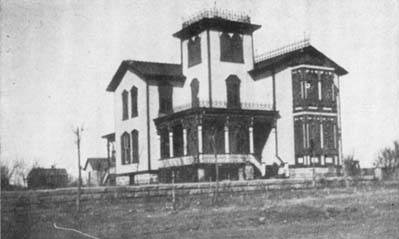 The Hardy House, 1903
The Hardy House, 1903
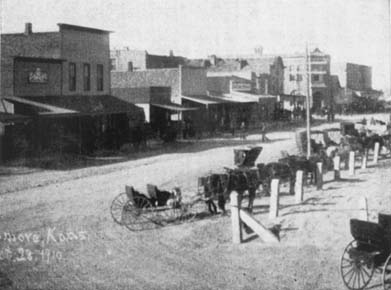 Jetmore Street Scene
Jetmore Street Scene
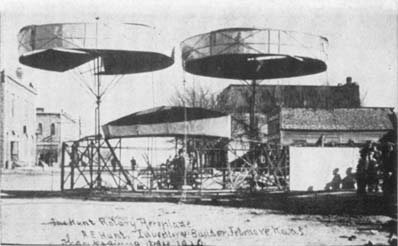 The Hunt Rotary Aeroplane, R. E. Hunt Inventor, Builder
Unsuccessful Because of Weight and Lack of Power
The Hunt Rotary Aeroplane, R. E. Hunt Inventor, Builder
Unsuccessful Because of Weight and Lack of Power
After the schoolhouses were built over the county they were the centers of local activity. Sunday schools were held at many of them and itinerant preachers sometimes conducted what were known as "Protracted Meetings" - revivals to you. Church organizations were effected, with preaching at intervals by ministers from the surrounding towns. Spelling schools were common, and arithmetic matches, which developed a great deal of competition among local contestants and between rival schools. As the spelling contests waned literary societies took their place and schoolhouse walls resounded to music both vocal and instrumental, and recitations of more or less excellence. Momentous questions were debated and unprejudiced judgments rendered. Several communities boasted baseball teams, and the towns of Jetmore and Hanston were belligerent rivals for many years, though they sometimes combined their efforts against neighboring towns. And always there was music. Every neighborhood had its fiddlers; there were singing schools and orchestras. The E French harp was as popular, as was the lowly jaws-harp. Organs with foot pedals were used. Every gathering was an occasion for singing.
With the advent of the automobile and the concentration of recreational facilities in the towns the need for local diversion passed and local rivalries gave way to larger loyalties. Easier transportation and the gradual passing of the one-room school have resulted in a centrality of interest and activity impossible in the days of the horse and buggy.
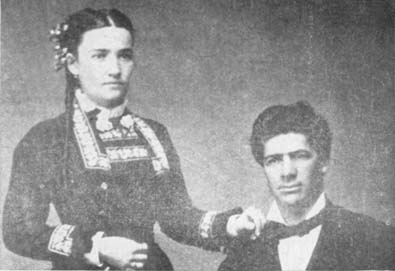 Elizabeth and T. S. Haun, Founders of Jetmore
Elizabeth and T. S. Haun, Founders of Jetmore
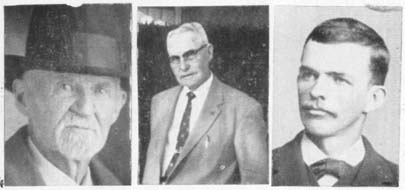 C. E. Roughton, L. W. Hubbell, Lincoln Hull
C. E. Roughton, L. W. Hubbell, Lincoln Hull
Contents |
Previous: A Bedtime Story? |
Hosted by the
Hodgman Family Home Page at
http://www.hodgman.org/
Last updated 03/26/1998





